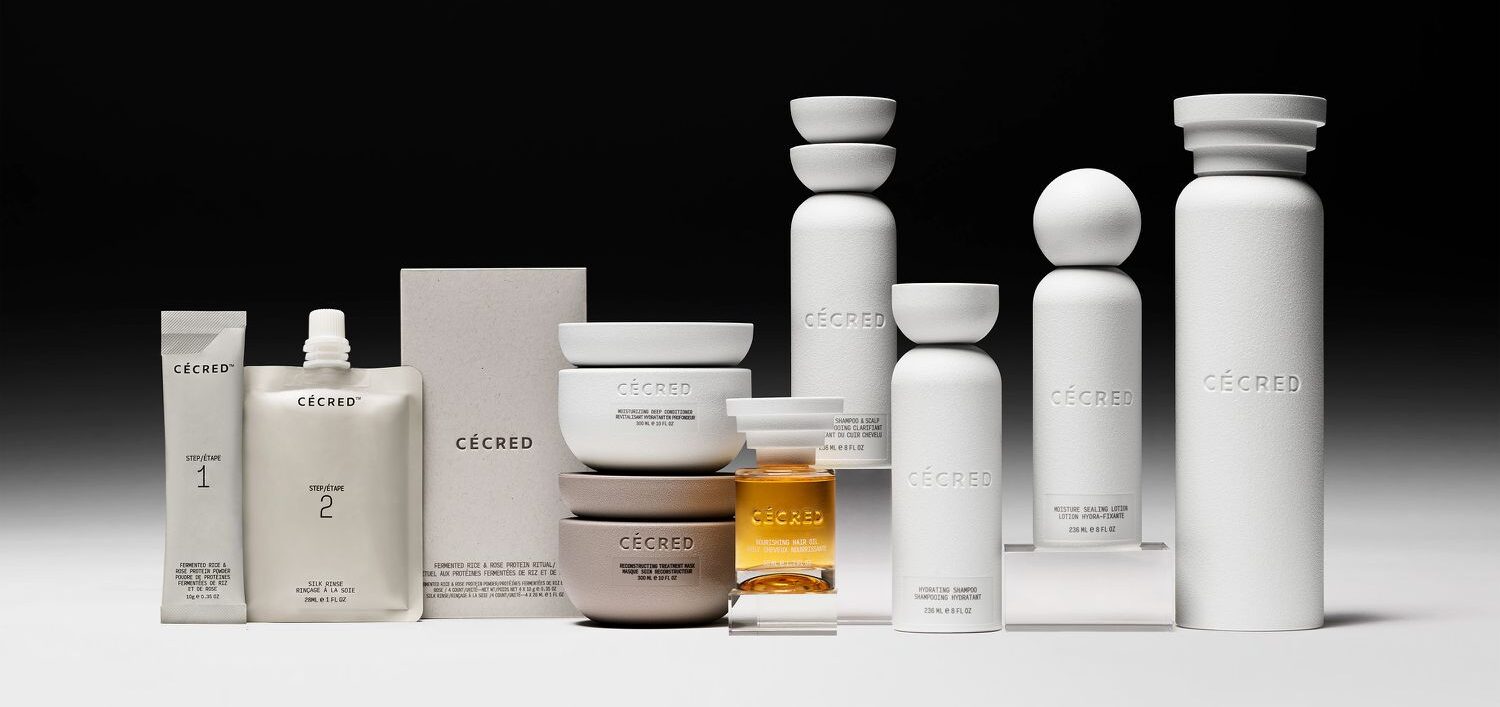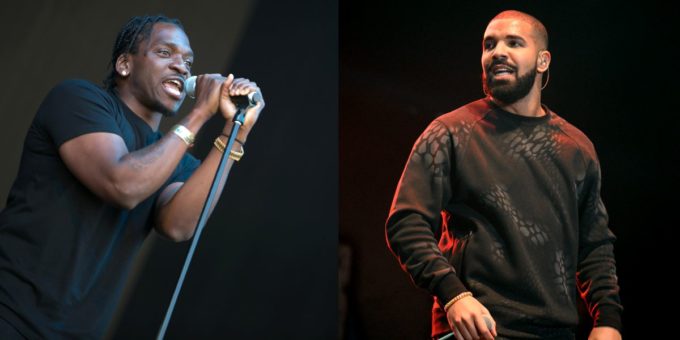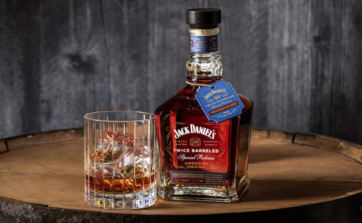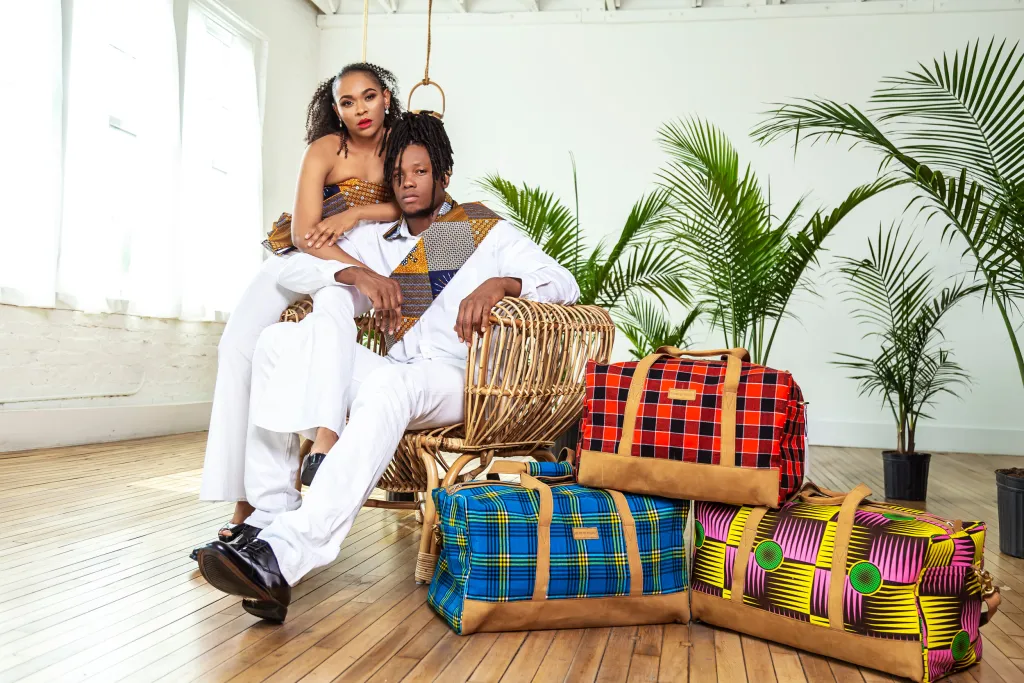An on-again, off-again rap beef between Drake and Pusha-T was reignited last week, and it’s what rap fans have been waiting for.
Pusha-T, a rapper from Virginia, one-half of hip-hop duo Clipse and president of Kanye West’s GOOD label, released his latest album, DAYTONA, on Friday. It included a track that took aim at Drake, who is working on his own album, Scorpion, due out in June.
Battles have been a longstanding tradition in rap, dating back to the early years where MCs would take turns exchanging insults in what was called “the dozens.” Today, official rap battles take place in cities all over the world, including one closely affiliated with Drake in Toronto called King of the Dot.
Drake, for his part, has been involved in several battles, notably with Common, Jay-Z and Meek Mill, and in many cases has proven he can not only hold his own, but can come out on top. Most notably, he released back-to-back diss tracks directed at Meek Mill in 2015 after the Philadelphia rapper accused him of using a ghostwriter. Despite the serious claim, Drake’s attack silenced Meek Mill.
Drake’s beef with Pusha-T dates back as far as 2006, but has been dormant for some time. Not anymore.
May 25
On “Infrared,” the closing track to DAYTONA, Pusha resurfaced the criticism around Drake using a ghostwriter, going so far as to equate Drake’s success to U.S. president Donald Trump’s.
“How could you ever right these wrongs, when you don’t even write your songs?” Pusha raps.
Within hours, Drake replied with “Duppy Freestyle,” using the Jamaican patois for “ghost.”
In it, Drake criticizes Kanye West, Pusha’s label boss and the producer of DAYTONA, for also using a ghostwriter, and questions Pusha’s entire backstory. Pusha-T has had a long career dealing in drug raps, which recount, in detail, his time selling drugs with his brother and cousin.
“Your brother said it was your cousin then him, then you. So you don’t rap what you did, you just rap what you knew,” Drake says. He also name check’s Pusha’s fiancé, and says Pusha, now 41, is washed up, using a beef with Drake to sell more albums. “Tell ‘Ye, we got a invoice comin’ to you, considerin’ that we just sold another 20 for you,” he raps.
“Duppy Freestyle” was accompanied with an Instagram post that included an invoice to GOOD music for $100,000 for “promotional assistance and career reviving.”
The thought at the time was that Pusha made a mistake reigniting his battle with Drake, with many joking on Twitter that it killed any chance his album, which has received glowing reviews, had of making a mark.
While Drake had won the first round, Pusha was just getting started.
May 29
“My truth was questioned, and I’m gonna deal in truths all summer long,” Pusha told Vulture before releasing “The Story of Adidon,” a scathing, vicious personal attack that names Drake’s father, mother and producer, Noah “40” Shebib. In a move that some have said goes too far, Pusha questions how much time Shebib, who suffers from multiple sclerosis, has left, even releasing the track the night before World MS day.
“OVO 40, hunched over like he 80, tick, tick, tick, How much time he got? That man is sick, sick, sick,” Pusha raps.
Pusha told the radio morning show the Breakfast Club that because Drake mentioned his fiancé, “all bets are off,” and that he “definitely didn’t go too far.” He’s “here for the sport of it, but like I said, when it gets personal, it gets personal.”
Of course, in a rap battle, there really is no such thing as too far, with many even joking that he didn’t go far enough. This is, after all, one of the most exciting and unique elements of rap, when two artists exchange heated lyrical attacks in a game of one-upmanship. Drake’s diss landed a lot of quotable punchlines, but it was a sitcom compared to Pusha’s The Wire-like multilayered takedown, which also accuses Drake of being a deadbeat dad who is hiding his child from the world.
“A baby’s involved, it’s deeper than rap, We talkin’ character, let me keep with the facts. You are hiding a child, let that boy come home, Deadbeat mothaf–ka, playin’ border patrol,” Pusha-T raps.
The song is also named after Drake’s alleged son, Adonis. Pusha claims that Drake was going to name his upcoming Adidas collection by using a portmanteau of of the two names: Adidas and Adonis, hence Adidon.
“Adonis is your son, And he deserves more than an Adidas press run, that’s real,” Pusha raps.
But Pusha wasn’t done there.
In what may be the biggest blow, the song’s artwork features an old photograph of Drake in blackface. Many are now calling on Drake to answer for the photo, including Pusha himself.
“I think there are bigger questions now,” he told the Breakfast Club. “They don’t have to be answered to me, but there are bigger questions than the things that I brought up that he has to answer.”
The photo in question was thought to be part of a Toronto fashion line called Too Black Guys, as part of their 2008 “Jim Crow Couture” line which, according to their website, is meant to “represent the black experience in an unapologetic way.” The photographer, David Leyes, has also come out in Drake’s defence, pointing at that the photo has been taken out of context and was intended as a satire. “I’m proud to be part of a strong statement made by a black man about the f–ked up culture he is livin in,” he said on Instagram.
Rapper Lupe Fiasco also defended the photo and, in a now deleted tweet, points out that there were originally two photos. “The one you saw is happy,” he wrote. “The other is dark and sad. Both together actually presents a powerful duality of representations and race and its expectations on art.”
Pusha likely understood the context, just as he understood the impact this photo by itself would have on Drake’s credibility. The nuance was also lost on fans, with many giving Pusha the win for his three-sided bombardment.
“Surgical Summer, Volume 1, We gon’ take this slow,” Pusha raps at the end of “the Story of Adidon,” indicating that this is far from over.
If Drake’s history has proven anything, he’s likely preparing something now.
May 30
Update: Late last night, Drake addressed the photo in an Instagram story, explaining that it was part of a project to raise awareness around the struggles black actors face.
“I know everyone is enjoying the circus but I want to clarify this image in question. This was not from a clothing brand shoot or my music career. This picture is from 2007, a time in my life where I was an actor and I was working on a project that was about young black actors struggling to get roles, being stereotypes and type cast,” he wrote. “The photos represented how African Americans were once wrongfully portrayed in entertainment. … “[We] were attempting to use our voice to bring awareness to the issues we dealt with all the time as black actors at auditions. This was to highlight and raise our frustrations with not always getting a fair chance in the industry and to make a point that the struggle for black actors had not changed much.” ( · CBC Radio)









